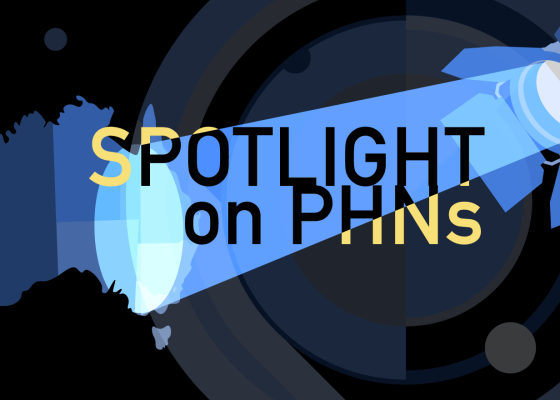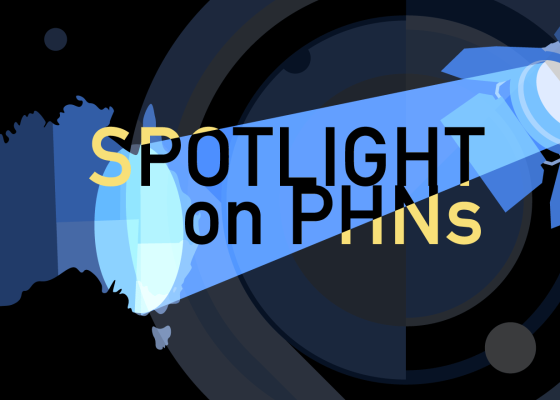For the first time a PHN has installed an electronic self-monitoring station for patients in an area of lower primary care access.
The Hunter New England and Central Coast PHN has taken a leaf out of Wesfarmers Health’s Priceline book and installed a SiSU electronic health station at a community pharmacy in its area.
Priceline pharmacies have been running SiSU Health Stations since 2016, measuring customers’ blood pressure, heart rate, body fat percentage, height, weight, BMI and diabetes risk.
In what appears to be a national first for a primary health network, HNECC has placed a Gen 2 SiSU Mini Health Station in the Timbs Pharmacy in Glen Innes.
“Our long-standing commitment to Glen Innes, a community that has historically faced healthcare limitations, drives this project forward,” said HNECC CEO Richard Nankervis.
“By introducing this innovative digital health solution, we are actively addressing the health disparities faced by rural communities.”
The introduction of the digital health innovation aims to provide three things for the Glen Innis community, he said.
- Improved access to preventive health: In four minutes, users can measure essential health indicators, including weight, body composition, blood pressure and heart rate. This self-service approach empowers individuals to regularly track their health between routine check-ups;
- Early detection and intervention: By providing on-demand health screenings, the Mini Health Station facilitates early identification of potential health issues. This proactive approach allows residents to seek timely medical advice and intervention, which can significantly enhance long-term health outcomes;
- Increased health literacy: The SiSU Mini Health Station also aims to elevate health awareness within the community. With easy access to health data and personalised health reports via the SiSU Health mobile app, residents are encouraged to take charge of their health and engage in proactive wellness management.
Wesfarmers Health’s deployment of the SiSU technology has not been without controversy, however.
In early October Wesfarmers released its “health index” report based on data collected from the SiSU stations.
Since their introduction to Priceline stores in 2016, according to Wesfarmers, the machines have recommended people visit their regular GP 565,000 times.
According to the report, which captured a sample of about 290,000 SiSU consults between 2018 and 2024, one quarter of Australians are obese, 13% are daily smokers, 29% have high blood pressure and 6% have diabetes.
SiSU stations collect data in isolation, without the consideration of longitudinal care.
“Data helps paint the picture, it gives an indication of the status of what’s happening in communities and what the driving forces are,” Priceline spokesperson and pharmacist Amy Jones told HSD’s sister publication, The Medical Republic.
“That’s probably something that needs to be explored further … there’s only a hypothesis you can create from that narrative, from that data set.
“There was a lot of disparity across the regional versus metropolitan areas or electorates, that was a key pattern that we started to see emerging from the data sets.
“The hypothesis around that is that it is accessibility to healthcare services and having access to healthcare in a timely fashion and having it be affordable and then also lifestyle implications … and socio-economic status.”
Meanwhile, in Glen Innes, the SiSU Mini Health Station will recommend that individuals with elevated results consult a GP or pharmacist for further assessment.
“This initiative underscores HNECC PHN’s commitment to improving healthcare access in rural areas through innovative solutions tailored to community needs,” said the PHN’s media release.
“By combining the trusted presence of a local pharmacy with advanced digital health technology, Glen Innes residents can gain greater control over their health, leading to improved long-term outcomes.”
The Gen 2 SiSU Mini Health Station at Timbs Pharmacy, Glen Innes, is part of the Better Health for the Bush initiative.
Thirty happy returns for Murrumbidgee PHN
Murrumbidgee PHN celebrated 30 years supporting GPs in its region with a party and the release of its 2023-24 annual report this week.
Speaking at the celebration do, board chair Dr Jodi Culbert told the tale of exploring the PHN’s archives of annual reports, media clippings and anecdotal feedback.
“While the archives uncovered various workplace stories and legends, they also revealed that many of those early day challenges remain today,” said Dr Culbert.
“The final report for the first year of operations states the health workforce in the region as a ‘major problem’.
“Thirty years on we are still grappling with this very same challenge. Just as we did in the 90s, we continue to look for innovative options to address health workforce shortages.”
The good news is the technology has improved, at least.
“In that same report, we also find the first organisation workplan. On it is listed a goal to connect 95% of general practices to a fax machine,” she recounted.
“While many of the projects and challenges from those early days are similar today, the strong foundations and partnerships created throughout the past 30 years positions us well to continue to innovate, inspire and transform the local health system.”
In 2023-24 Murrumbidgee PHN invested $27.3 million across 206 provider contracts; gave away $460,000 in 18 general practice grants, $150,000 for 60 vulnerable population grants, $201,000 for 39 covid immunisation grants, $18,000 for three suicide prevention grants, and $155,000 for 28 wellbeing and resilience community grants.
Read the full annual report here.
Northern Queensland PHN
NQPHN has signed a member engagement protocol with Torres and Cape Hospital and Health Service.
“The protocol promotes collaboration in the planning, delivering, and improving of health services for the people in the Torres Strait and Cape York regions,” said the PHN’s interim CEO Ben Tooth said.
“We value our strong partnership with TCHHS and appreciate their contribution to developing a primary healthcare system that delivers the best possible care for north Queenslanders.
“The MEP outlines our shared goals and how we will work together to achieve them.
“We also work directly with the HHS at an operational level on projects such as the Joint Regional Needs Assessment and the Joint Regional Wellbeing Plan.”
Mr Tooth said the engagement protocol would conclude on 30 June 2026.
“We are driven to building on our already great relationship with Torres and Cape Hospital and Health Service,” Mr Tooth said.
“We intend to work with them to renew or develop a new protocol at that time,” he said.



